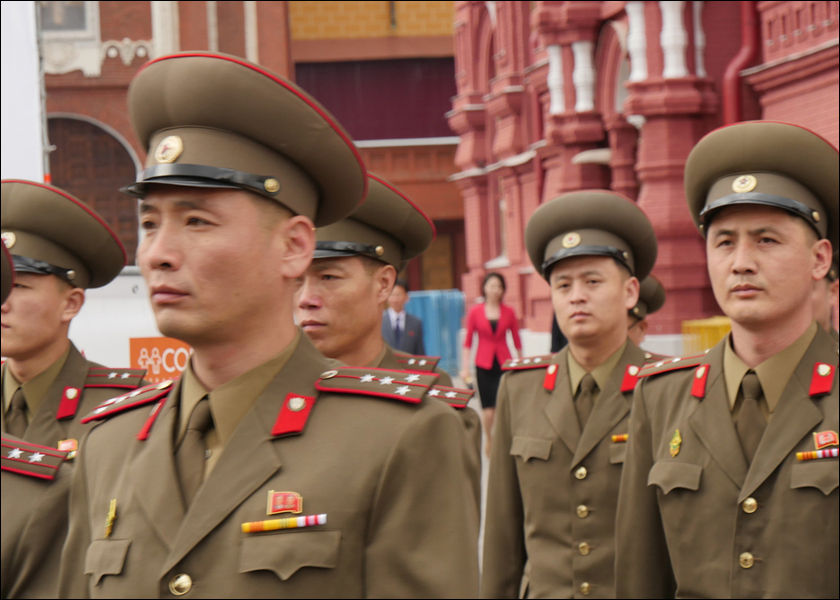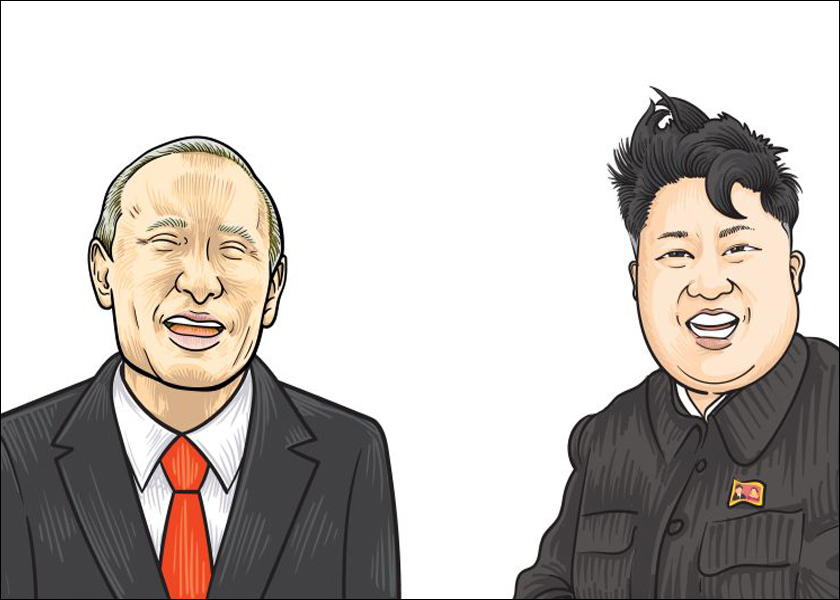These soldiers may ultimately challenge regime stability back home | By Jaemin Lee (Fall 2024)

North Korea is sending 12,000 soldiers to Russia to help Moscow in the prolonged Russia-Ukraine war. It is one of the most unexpected developments in and around the Korean peninsula recently. It is as startling for South Korea as when it first encountered the North’s nuclear development program back in 1993.
This is the first-ever overseas dispatch of combat-ready, fully-mobilized armed forces by North Korea. In the past, North Korea has dispatched small contingents of military advisors and pilots here and there to support its authoritarian allies, but nothing like the magnitude of the full brigade that was just deployed.
It is a game changer in many respects. Russia and North Korea have declared a full military alliance, which is something that not even China would consider with its long-term ally Pyongyang. Russia will now have to reciprocate by supplying various items on North Korea’s long wish list. Provision of state-of-the-art missile technology, advanced fighter jets, and modernized air defense systems will likely be the first tranche.
The dispatch is part of the upcoming mutual defense treaty between Moscow and Pyongyang, signed on June 19, 2024 during Vladimir Putin’s visit to the North. The pact is not in force yet, as it is going through domestic ratification procedures on both sides, but ratification is expected soon. Article 3 of the pact obligates each party to “immediately provide military…assistance by all… means available,” if one party “is put in a state of war by an armed invasion.” The pact, combined with the combat troops’ deployment to Russia this time, will complete the emergence of the Russo-North Korean military alliance, which will send a tidal wave across the Korean peninsula.
At the same time, the overseas deployment is a risky gamble for North Korean leader Jong-un Kim. He is now sending young soldiers to the middle of Europe, 7,000 kilometers away from their home country. Although the soldiers are part of an elite group of the North Korean army, defection and desertion on the battlefield are not improbable. Given the ugly condition of the battleground in Ukraine and Russia, and the West’s active propagation of its own political programs at the frontlines, the conditions could easily make young soldiers politically and emotionally vulnerable in their struggle to survive, despite their strict ideological training.
North Korean soldiers could also appear in news outlets or social media clips, after capture by Ukrainian forces. Intended or unintended, they may make damaging statements about the North Korean regime. Heavy casualties, once they become known to domestic constituents, may also strike a political blow to the iron-clad regime.
Seclusion has been North Korea’s polestar, and insulating the population from outside influence has been its guiding light for many decades. Look no further than the regime’s family hostage policy, where its diplomats are required to leave children or close family members back home to preempt any thought of overseas defection. Diplomats and their families in foreign countries also live in groups under tight surveillance from Pyongyang. The North’s laborers in China and Russica also live in their respective bubbles of control and are subject to inspection by government-dispatched overseers.
Recently, North Korea has further intensified its seclusion policy. It closed off its borders with China and installed new fences and walls to prevent its people from crossing the Chinese border. Just three weeks ago, Pyongyang also blew up railroads and roads connecting the North to the South to make it clearer that the country will remain cut off from South Korea.
It is therefore interesting timing that the North Korean leader decided to embark on ambitious experiment that could undermine his iron law of seclusion. Jong-un Kim is now putting tens of thousands of young soldiers — taking into account rotations and reinforcements for the time being — in an environment where his control cannot be water-tight any more. There are reports that North Korean soldiers being deployed with Russian uniforms and Russian equipment and being trained in Russian military barracks. Interaction with foreign elements is already taking place. In the fog of the battlefield on foreign soil, coordinating with Russian forces and Wagner fighters, such interaction will increase and intensify. At some point, it will pop the bubble of seclusion that North Korea has created and maintained for so many years.
By all accounts, the Russian dispatch is Kim’s riskiest gamble. He can bolster the North’s conventional military capability through combat. He can obtain modernized weapons and military systems from Moscow. He can also secure a commitment from Russia if the North Korean regime is in jeopardy. These gains will be critical when it comes to the North’s standoff with outside foes, such as South Korea and the U.S. But they will be either minimally meaningful or even damaging for an internal stability and control dependent on a draconian seclusion policy.
This article originally appeared in Foreign Policy in Focus.




